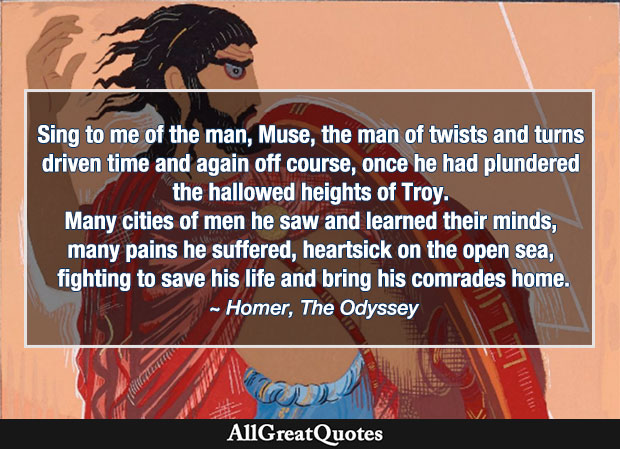"But once you have killed those suitors in your halls –
by stealth or in open fight with slashing bronze –
go forth once more, you must…
carry your well-planed oar until you come
to a race of people who know nothing of the sea,
whose food is never seasoned with salt, strangers all
to ships with their crimson prows and long slim oars,
wings that make ships fly. And here is your sign –
unmistakable, clear, so clear you cannot miss it:
When another traveler falls in with you and calls
that weight across your shoulder a fan to winnow grain,
then plant your bladed, balanced oar in the earth
and sacrifice fine beasts to the lord god of the sea,
Poseidon – a ram, a bull and a ramping wild boar –
then journey home and render noble offerings up
to the deathless gods who rule the vaulting skies,
to all the gods in order.
And at last your own death will steal upon you…
a gentle, painless death, far from the sea it comes
to take you down, borne down with the years in ripe old age
with all your people there in blessed peace around you.
All that I have told you will come true."
– Homer
The Odyssey, Book 11, lines 136-157. Odysseus that he has one last journey to make before he dies a gentle death in his old age, Tiresias prophesies. After arriving home and killing the suitors, Odysseus must journey to a race of people who don’t know the sea, plant his oar in the earth, and sacrifice a ram, bull and wild boar to Poseidon. Then he must return home and honor all the gods with offerings. This would be seen as atonement by Odysseus for having blinded the sea god’s son. This passage foreshadows the deaths of the suitors.

